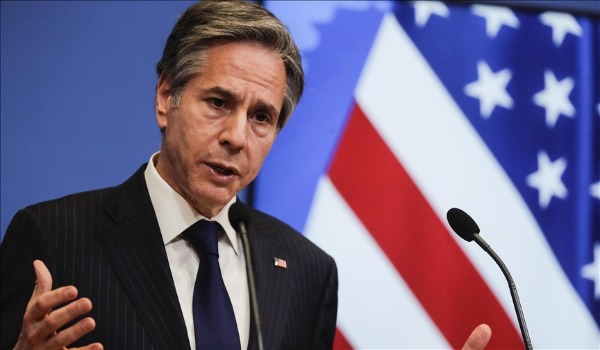Blinken says Wagner’s rebellion reveals ‘very serious cracks’; mutiny stoke fear of supply disruption impacting oil price hike
US Secretary of State Antony Blinken spoke in an interview with ABC News on Sunday. He discussed Wagner’s aborted advance toward Moscow, which had been ordered by its leader, Yevgeny Prigozhin.
The top US diplomat says the circumstances surrounding the armed rebellion over the weekend by the Russian private military firm Wagner Group have exposed “some very serious cracks” in Russia.
Blinken said Wagner’s move is not a surprise as tensions had already been rising for months due to Prigozhin’s public criticism of Russian President Vladimir Putin’s administration.
The secretary said Prigozhin also openly challenged Putin’s leadership while publicly questioning the premise cited by Russia for its aggression against Ukraine.
Blinken said the invasion has made Russia “weaker” economically and militarily, with its global standing plummeting.
The secretary said that with the internal dissension in Russia, it is impossible to speculate on where the situation goes. But he stressed that the US is focused on Ukraine.
Blinken also spoke to CBS News on Sunday, saying the US has not seen any change in Russia’s nuclear posture. But he added that Washington is going to watch developments in Russia “very, very carefully.”
Recall a clash between Moscow Wagner was averted on Saturday after the heavily armed mercenaries withdrew from the southern Russian city of Rostov.
Meanwhile, oil prices rose in early Asian trade on Monday after the failed mutiny by Russian mercenaries over the weekend raised concerns about political instability in Russia and the potential impact on oil supply from one of the world’s largest producers.
Brent crude futures rose 95 cents, or 1.3%, to $74.80 a barrel by 2300 GMT on Sunday. U.S. West Texas Intermediate (WTI) crude was at $70.04 a barrel, up 88 cents, or 1.3%.
RBC Capital Markets analyst Helima Croft said there were concerns that Putin would declare martial law, preventing workers from showing up to major loading ports and energy facilities, potentially halting millions of barrels of exports.
“It is our understanding that the White House was actively engaged yesterday in reaching out to key domestic and foreign producers about contingency planning to keep the market well supplied if the crisis impacted Russian output,” she added in a note on Sunday.
Goldman Sachs analysts said markets may price a moderately higher probability that domestic volatility in Russia leads to supply disruptions or has a sizable negative impact on oil supply in the future.
However, the impact may be limited because spot fundamentals have not changed, and because any hits to financial risk sentiment or to oil demand from increased uncertainty may provide an offset, the Goldman Sachs analysts added in a note.
Both Brent and WTI fell about 3.6% last week on worries that further interest rate hikes by the U.S. Federal Reserve could sap oil demand at a time when China’s economic recovery has also disappointed investors after several months of softer-than-expected consumption, production and property market data.
“China’s economic growth has been a nightmare for commodity markets, particularly in oil and industrial metals,” CMC Markets analyst Tina Teng said in a note.
LENS/Reuters




